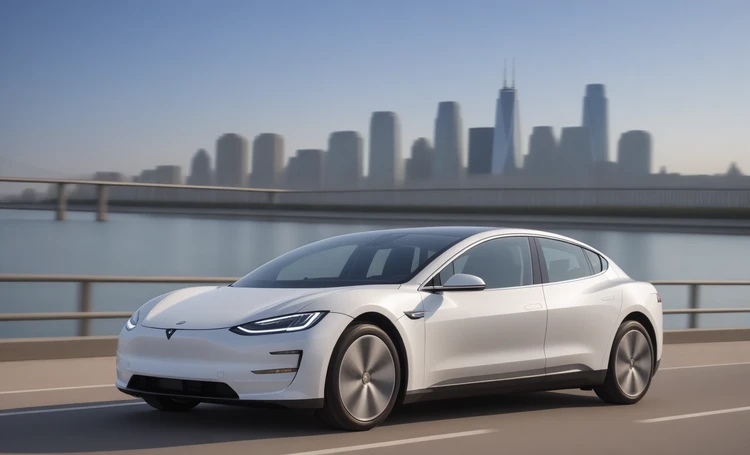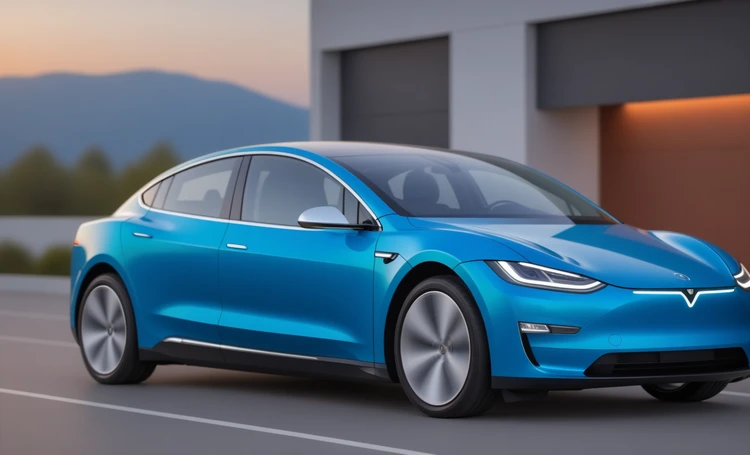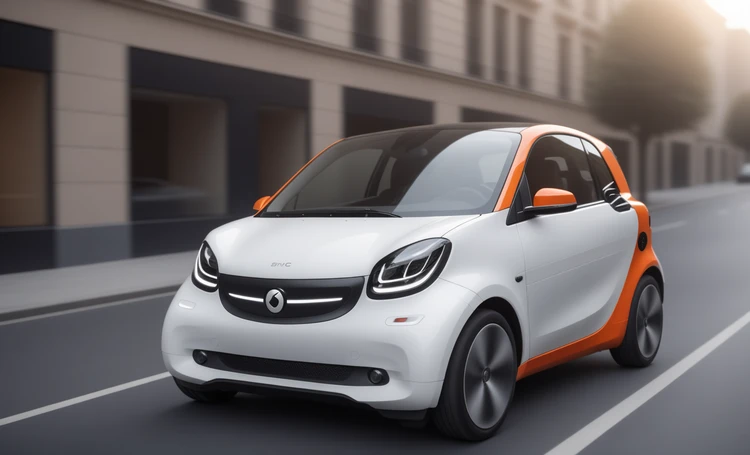🚗 Electric Vehicles and Annual Tax: How Does It Affect Your Wallet?
Electric vehicles are becoming an increasingly popular choice among motorists around the world, including countries such as Germany, the USA and other European countries. One of the important factors influencing the choice of electric vehicles is to find out about the favorable annual tax conditions for electric vehicles here. Taxation for electric vehicles in these countries may differ significantly from traditional combustion vehicles, making them more attractive in the long term.
📉 Tax Comparison: Electric Cars Versus Traditional Cars
In many countries, including the US and Germany, owners of electric vehicles pay significantly less annual tax than owners of gasoline or diesel cars. This is due to several factors:
- Eco-friendliness: Electric vehicles are considered more environmentally friendly as they do not produce direct carbon dioxide emissions.
- Government support: Many governments offer incentives and subsidies to encourage the use of electric vehicles.
💰 Economic Benefit
Switching to an electric vehicle not only helps save the environment, but can also significantly reduce your vehicle tax bill. Here are a few key points to consider:
- Tax breaks: In some countries, owners of electric vehicles are completely exempt from paying vehicle tax or pay significantly less.
- Subsidies and reimbursements: Governments often provide subsidies when purchasing an electric vehicle, which reduces the initial costs.
🌍 Impact on the Environment
One of the main reasons why governments favor electric vehicles is their positive impact on the environment. It includes:
- Reduced carbon emissions: Electric cars do not emit harmful gases, unlike fossil fuel cars.
- Reducing air pollution: Electric vehicles help improve air quality in cities.
🌐 Global Trends in Electric Vehicles
Electric cars are gaining popularity around the world. Countries such as Norway and the Netherlands are showing high rates of transition to electric vehicles. In these countries, public policy actively supports the development of infrastructure for electric vehicles, including charging networks and preferential taxation.
🇺🇸 USA: Incentives and Policies for Electric Vehicles
In the United States, the federal government and individual states offer various incentives for electric vehicle ownership. These measures include tax credits, registration incentives and even free parking in some cities. These incentives make purchasing and operating electric vehicles more attractive to consumers.
🇩🇪 Germany: Leader in Electric Vehicle Adaptation
Germany is one of the leaders in Europe in the number of electric vehicles on the roads. The German government offers a variety of incentives and subsidies for electric vehicle buyers, including significant tax rebates and incentives for installing home chargers.
🇪🇺 Europe: Diversity of Approaches
European countries have taken varied approaches to taxing electric vehicles. For example, France and Italy provide subsidies and tax incentives to reduce the cost of owning an electric vehicle. These measures help accelerate the transition to more environmentally friendly vehicles.
💹 Economic Prospects
The transition to electric vehicles not only improves the environmental situation, but also opens up new economic opportunities. Here are some of them:
- Growth of the electric vehicle market: Increasing demand for electric vehicles is driving the industry, creating new jobs.
- Battery Innovation: Improvements in battery technology are helping to improve the performance of electric vehicles.
🌱 Environmental Innovation and Sustainable Development
Electric vehicles play a key role in the sustainable development of urban and rural areas. They help reduce pollution and improve the quality of life of the population. The adoption of electric vehicles is also accelerating the development of renewable energy sources, as they require a clean source of electricity to charge.
📊 Statistics and Forecasts
Forecasts indicate that by 2030 the share of electric vehicles on the roads will increase significantly. This will lead to lower carbon emissions and improved air quality in cities.
- Rise in Electric Vehicles: The number of electric vehicles in the world is expected to double every few years.
- Lower Battery Costs: As the cost of producing batteries falls, electric vehicles will become more affordable.
🌟 Advantages of Electric Vehicles for Users
Owning an electric car brings a number of benefits beyond annual tax savings:
- Lower fuel costs: Electric vehicles use electricity, which typically costs less than gasoline or diesel.
- Lower Maintenance Costs: Electric vehicles have fewer moving parts than traditional cars, reducing maintenance costs.
🛠️ Technological Innovation
Modern electric cars are equipped with advanced technologies that make them not only more environmentally friendly, but also easier to use:
- Smart features: Many electric vehicles come with smart features such as autopilot, remote control, and battery monitoring.
- Fast charging: Advances in fast charging technologies can significantly reduce the time required to charge electric vehicles.
📚 Education and Awareness
To promote electric vehicles, it is important not only to create economic incentives, but also to raise public awareness of their benefits. Information campaigns, educational programs and events help spread knowledge about the benefits of electric vehicles and their impact on the environment.
📈 Economic Prospects for Manufacturers
Car manufacturers are also benefiting from the shift to electric vehicles:
- New Market Opportunities: Demand for electric vehicles is creating new business opportunities for manufacturers.
- Manufacturing Innovation: Electric vehicles require the development of new technologies and manufacturing processes.
📝 Final Thoughts
Electric cars are not only an environmentally friendly alternative to traditional cars, but also a cost-effective solution in terms of annual tax. With global trends and policies in various countries, switching to electric vehicles is becoming an increasingly attractive option for drivers around the world.
Electric vehicles help reduce carbon emissions, improve air quality and reduce transportation costs. With technological advances and increasing affordability, electric vehicles promise to be a key element in creating a more sustainable and green future.
🌐 Impact on the Global Market
The global electric vehicle market continues to grow, attracting the attention of both consumers and manufacturers. With more models available and charging infrastructure improving, electric vehicles are becoming more affordable and convenient for a wide range of users.
📊 Statistical Data
- Sales Growth: Sales of electric vehicles continue to rise around the world, demonstrating increased interest in environmentally friendly transportation.
- Infrastructure development: In parallel with the increase in the number of electric vehicles, the number of charging stations is also increasing.
🌿 Ecological Perspective
The transition to electric vehicles has huge implications for environmental sustainability. Reducing carbon emissions and improving air quality are key factors in the fight against global warming and pollution.
🌱 Green Initiatives
Many countries are introducing green initiatives, including developing infrastructure for electric vehicles and providing tax incentives to encourage their use. This not only helps improve the environment, but also stimulates economic growth in the clean technology sector.
📌 Conclusions
Electric vehicles represent an important step towards a sustainable and green future. With tax incentives and government support, they are becoming an increasingly attractive choice for consumers around the world. Improved technology, falling costs and growing infrastructure are making electric vehicles accessible and convenient, opening up new opportunities to improve quality of life and protect the environment.
Not only do electric cars help you save on annual tax, but they also offer a range of other benefits including savings on fuel, reduced maintenance costs and a positive contribution to the environment. Given global trends and policy support, electric vehicles promise to be a key element in creating a greener and more sustainable future.



